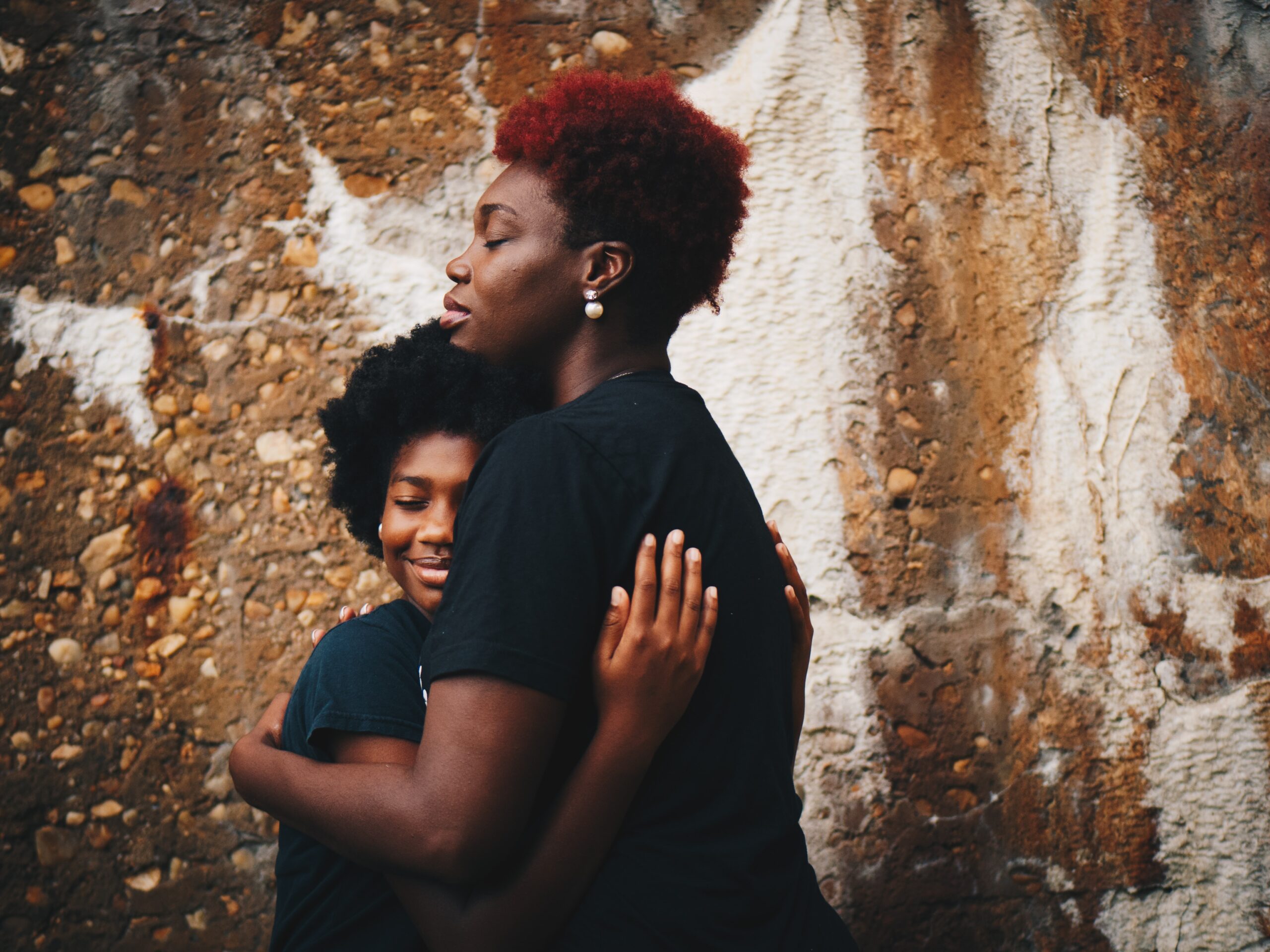Unhealthy Mother and Child Relationship

Are you currently preparing to become a good mother to your future child? Or maybe you are the one who is worried that your own childhood experiences may bring negative influence to your parenting? Or perhaps you are the child who wants to analyze the kind of relationship that you have with your mother, so that you are able to know more about yourself, and why you are the way you are.
Here are the 5 types of unhealthy mother and child relationship:
- Bosom buddies

Psych2goers, did your mother know everything that is going on in your life? Your mother is your best friend forever. However, if you have this kind of strictly egalitarian relationship with your mother, in which neither party exercises authority over the other, you may probably have an unhealthy mother and child relationship.
If your relationship with your mother means “nobody is in charge”, your mother is actually exhibiting a permissive parenting style.
Koerner et al. (2002) reported that the adolescent daughters of divorce have a higher chance of experiencing psychological distress when their mothers disclose their economic strains, employment difficulties, personal problems, and negative feelings about their ex-husbands. On the other hand, Frijns et al. (2013) found that the Dutch teenagers who reported sharing secrets with their parents had higher-quality relationships and were less likely to become delinquents.
What can be concluded based on these two studies?
Building intimacy with your child does not necessarily need to involve burdening your child with your personal and emotional problems. A mother can still share a small dosage of her own “mental life” with her children, but not to the extent that it can distress them, but enough to make them realize that their mother is a normal human being with emotions.
2. Boss and subordinate

“Mom, can I go for a school trip for 3 days and 2 nights with my classmates during the school holiday? The teacher said we will ride a ferry, visit an island, and buy lots of chocolates, tax-free! I love chocolates!”
“No, you can’t. I already registered you for tuition classes throughout the school holidays. In a few months you will be a senior in high school, Lizzie. You should spend this coming holiday to prepare for your senior year and focus on your academic performance.”
“But…I love chocolates. And I want to create memories with my friends.”
“No. This is my final decision, believe me, I do this for you. It’s for your own good.”
Have you noticed that your mother tries to micromanage you, and refuses to trust your judgement? Oftentimes you feel that you are inadequate, and your mother tries to dismiss your needs and force her own rules and expectations on you under the notion that it is for your “own good”, without acknowledging the validity of your words and choices. Eventually, you will feel insecure and helpless, and may suffer from low self-esteem and fear rejection (Streep, 2015).
3. The role-reversal relationship
You are a 9-year-old child. Your parents have just gone through a very messy divorce. After the divorce, you live with your mother and you rarely see your father. Soon, you notice a change in behaviour of your mother. She becomes an alcoholic and experiences mood swings. Sometimes she is impulsive, she goes out of the house in late hours of the night, speeding in her car to no-one-knows-where. This reckless and impulsive behaviour is becoming more common in the household. Soon, you learn how to predict her mood daily so that you can steer her away from any trouble. When you notice her mood becomes low, you hide the car keys to keep her off the road.
Another type of unhealthy mother and child relationship is the role-reversal relationship, or also known as parentification. In this type of relationship, the need of a child for comfort, attention, and guidance has to be sacrificed in order to fulfill the logistical and emotional needs of the mother (Chase, 1999). Minuchin et al. (1967) stated that a parentified child has to bear the responsibility of becoming a parent to the parent because the latter neglect what they are supposed to do as a parent.
According to a psychotherapist, Dr. Samuel Lopez De Victoria, there are two types of parentification:
- Emotional
This is the most destructive type of parentification, in which the child is forced to meet the emotional and psychological needs of the parent. The child is expected to become the parent’s confidant, since the mother does not get the emotional need that she is supposed to get from her partner.
- Instrumental
The child is expected to meet the physical or instrumental needs of the family. The child is forced to be an adult caregiver by taking over the physical responsibilities of the parent, with little or no opportunity to just be a kid. For example, they are forced to cook or take care of their other siblings since their parent is not able to perform those responsibilities.
Consequently, once this parentified child grows up, they may experience difficulty building a healthy connection with their friends, spouse, or their own children.
4. The emotionally absent mother

Psych2goers, let’s examine the emotional connection that you have with your own mother. Is she distant, preoccupied, or give you inconsistent responses toward your emotional needs?
Most probably you have an emotionally absent mother.
According to a UK psychologist, Dr. Becky Spelman, when their young child is showing unease, a mother has the ability to intuit the child’s emotion and respond appropriately to the child to make them feel at ease, for example by flashing a reassuring smile or giving the child a warm hug. When a mother is emotionally absent, she lacks the empathy to meet the child’s emotional needs. This problem may not be so apparent during early childhood, however by the age of five, when cognitive development starts, the child may notice that the mother does not give any response when they try to engage with the mother. Thus, they soon learn to suppress their emotions, which can become a precursor to mental health issues such as eating disorders and other types of addictions. It can also cause a toll in the child’s adult intimate relationships in which they tend to be attracted to a partner who is also unable to fulfil their emotional needs. The child may also experience a fear of abandonment, in which they are afraid that if they become too close to other people, they may also experience the rejection that they were often subjected to as a child.
5. The mom and her trophy child
You visit your aunt’s house for a family dinner. Your aunt has once been rejected from entering an ivy league school. You see the display of many awards and accolades that her only son received throughout his elementary and high school years. Suddenly your aunt appears in front of you and starts to brag about her son’s achievements, saying that she really did a fantastic job in making sure her son succeeds in entering an ivy league school this coming fall.
Sometimes a mother may have unrealized dreams or wishes, thus she views her child as a representative to fulfil those dreams. Her child becomes an extension of herself, known as narcissistic appendage. These types of mothers groom their children to be a trophy, a symbol of their success, to be envied and admired in the way that other people would wish for themselves. The mother may have a difficult time separating her own needs from the child’s needs, and the child soon learns to discard their authentic self in order to conform to what the mother wants them to do.
Final thoughts
The relationship built between a mother and a child is complex, fluid, and usually affected by the environment, the emotional and psychological states of the mother, personalities, and the mother’s own upbringing.
BJ Neblett has once said;
“We are the sum total of our experiences. Those experiences – be they positive or negative – make us the person we are, at any given point in our lives. And, like a flowing river, those same experiences, and those yet to come, continue to influence and reshape the person we are, and the person we become. None of us are the same as we were yesterday, nor will be tomorrow.”
Both positive and negative past experiences influence us as a person that we are right now. Therefore, if you are planning to establish a healthy mother and child dynamic, it is highly important for you to be self-aware and self-reflective, so that you will be able to behave in ways that are consistent with who you aspire to be and how you wish to interact with your children or mother.
REFERENCES
Chase, N. (1999). An overview of theory, research, and societal issues. In N. Chase (Ed.), Burdened children (pp. 3-33). New York, NY: Guilford.
De Victoria, S. L. (2008, August 15). Harming your child by making him your parent. Psych Central. Retrieved September 21, 2021, from https://psychcentral.com/blog/harming-your-child-by-making-him-your-parent#1.
Frijns T, Finkenauer C, and Keijsers L. 2013. Shared secrets versus secrets kept private are linked to better adolescent adjustment. J Adolesc. 36(1):55-64.
Koerner SS, Wallace S, Lehman SJ, and Raymond M. 2002. Mother-to-Daughter Disclosure After Divorce: Are There Costs and Benefits? Journal of Child and Family Studies 11(4): 1062-1024 .
Minuchin, S., Montalvo, B., Guerney, B., Rosman, B., & Schumer, F. (1967). Families of the slums. New York, NY: Basic Books.
Spelman, B. (2021, January 7). Having an emotionally unavailable mother: Private therapy clinic. Having an Emotionally Unavailable Mother | Private Therapy Clinic. Retrieved September 21, 2021, from https://theprivatetherapyclinic.co.uk/growing-up-with-an-emotionally-unavailable-mother/.
Streep, P. (2015, February 2). 8 toxic patterns in MOTHER-DAUGHTER RELATIONSHIPS. Psychology Today. Retrieved September 21, 2021, from https://www.psychologytoday.com/us/blog/tech-support/201502/8-toxic-patterns-in-mother-daughter-relationships.





Responses